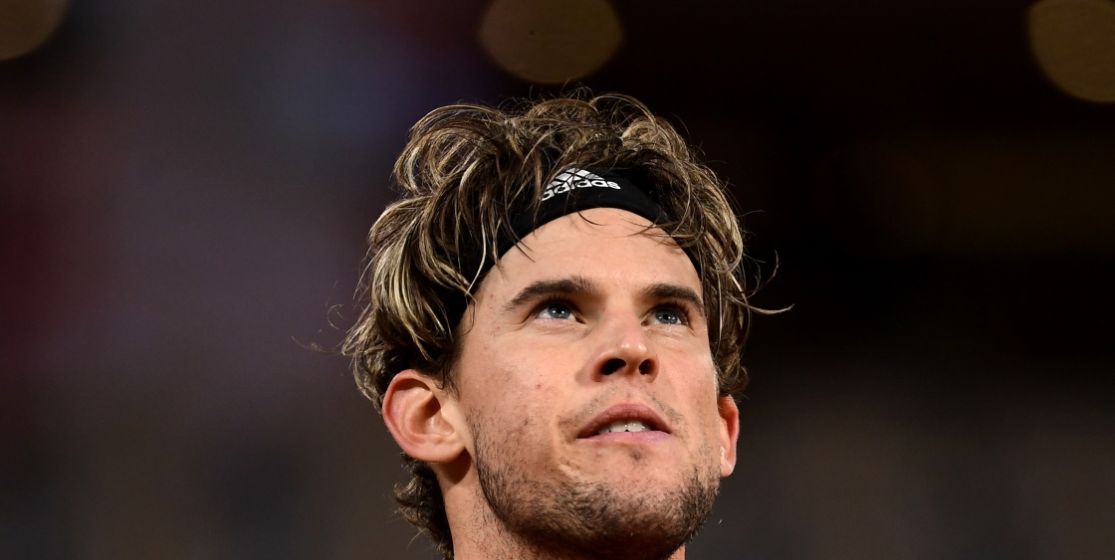Dominic Thiem’s career was given a major boost at the US Open last year. The only problem was that, without knowing it, he was on the edge of an abyss. After his Grand Slam win, his life’s ambition, he “fell into a hole”, he told the Austrian daily Der Standard in early April. “After the US Open I was in a state of euphoria. I had other good results, like the Masters final,” he explained. "Then, in the off-season, I faltered. I spent 15 years chasing the big goal (winning a Major), without looking to the left or the right. In a way, some things have fallen by the wayside. My private life, dealing with other things, broadening my horizons.... You have to do something for your head, for your brain. For me, there was only tennis. I want to change that.”
“For me especially, the years from 13 to 17, 18, they were pretty tough. I mean, there was only school, practice, homework, sleep, and that's like all year long,” he told a press conference ahead of the Masters 1000 in Madrid. “There was nothing else at all. I don't regret doing it, but I missed some things, like spending a sunny afternoon with friends sitting, talking about everything. I have more freedom now, so I try to do it whenever I can.” Like the tyrannical swimming teacher who pushes you back with his pole as you try to reach the edge, the health restrictions due to the Covid-19 crisis did not help the world number 4. “Huge parts are lost, and the coronavirus has taken beautiful things, starting with travelling and moving freely,” he told Der Standard.
Low spirits and rest
“It's difficult to play week after week in these conditions. Some guys can take it, for whom life in the bubble is probably an advantage, for example, Dan Evans or Alexander Bublik. They have problems focusing on sport in normal times. It's great for them; they concentrate exclusively on tennis, there is nothing else (and they have good results). I don't feel sorry for myself, I just feel a certain emptiness, but nothing serious.” To avoid falling into the abyss, the world number 4, who has also been dogged by knee pain, decided to take a rest. Following his early loss to Lloyd Harris in Dubai on 16 March, he only resumed serious training late last month.
“All players are different,” he explained in Madrid on 4 May, following his successful return to the court against Marcos Giron. “With my game, I need to put in 100% intensity and 100% energy. I am not the guy who can serve through a match or who can play with a little bit of intensity and still win. I need to be 100% in all aspects of my game. At the end of the Australian Open, then in Doha and Dubai, I wasn't able to give it my all on court, so it was better to take a break.” Even when he was at the bottom, he always had one lifeline to hang on to. “There were times in March when I felt very bad in general,” he continued to reporters.
Paris Open in his sights
“Even then I had in my head the great goal of Roland Garros (venue for the Paris Open, a tournament he had dreamed of since childhood). That is still in my expectations, which are very high. Here in Madrid, expectations are low, but I hope they will increase from one tournament to another. My goal is to be on top for Roland. I don't think I need too many games to come back (to his best level).” In the Spanish capital, despite seven weeks away from competitions, he moved on to the semi-finals thanks to wins against Marcos Giron, Alex De Minaur and John Isner, before capitulating before the eventual winner, Alexander Zverev. A good result, despite not having had high expectations for his clay court début in 2021.
“I'm surprised, I didn't expect to get this far,” he said. “I just expected to play a couple of good games here against top level opponents. I am quite satisfied with all aspects of my game. The groundstrokes on the court are working well. I'm happy with my serve and my return, especially today (7 May, in the quarterfinals against Isner), was very good. I think I’m on the right track. But I still have many things to improve, getting 100% back in the match rhythm, anticipation and everything.” This optimism remained intact in the wake of his defeat – 6/4 6/4 – against Zverev. “I'm super happy with my week,” he repeated. “I never thought I could make it this far and face such a player. I can’t complain about anything. He was the better player this time. Now I'm going to train for Rome, hoping to play there even better than here (in Madrid).”
Exempt from the first round as number 4 seed, the Austrian begins his Italian adventure against Márton Fucsovics on Wednesday. The pair have clashed three times since the start of their careers, all on clay courts – once on the main circuit in Hamburg in 2019, once during the Challenger qualifications in Barcelona in 2014 and once during the Futures in Morocco in 2012. So far, the Austrian has come out on top each time. If things go his way in the “Eternal City” – where his best result so far has been a semi-final in 2017 – it would top up his confidence before tackling the French Open. As he emerges from the abyss into which he fell, Dominic Thiem intends to return to the task he has been working on for years – to continue to carve his niche among the greatest players.
More information about
Players

Dominic Thiem

Alexander Zverev

John Isner

Alex de Minaur

Marton Fucsovics

Marcos Giron

Lloyd Harris


















